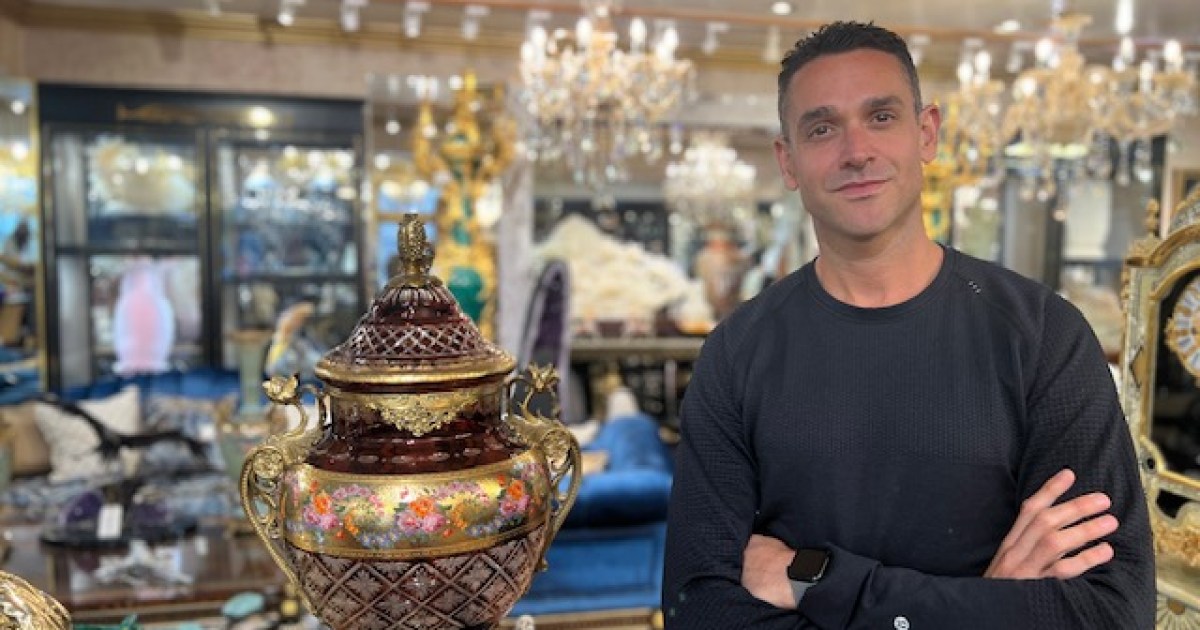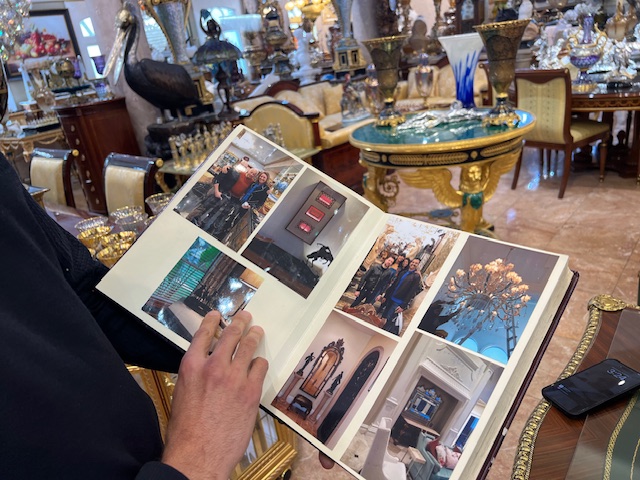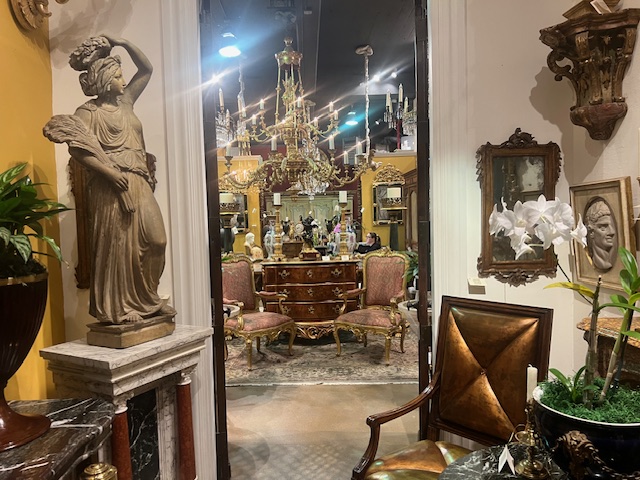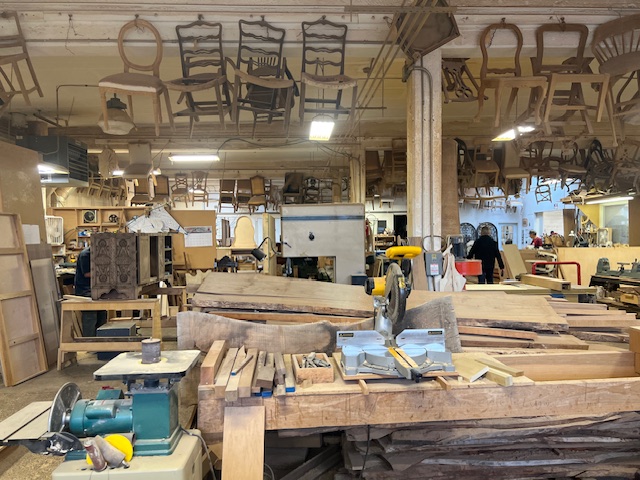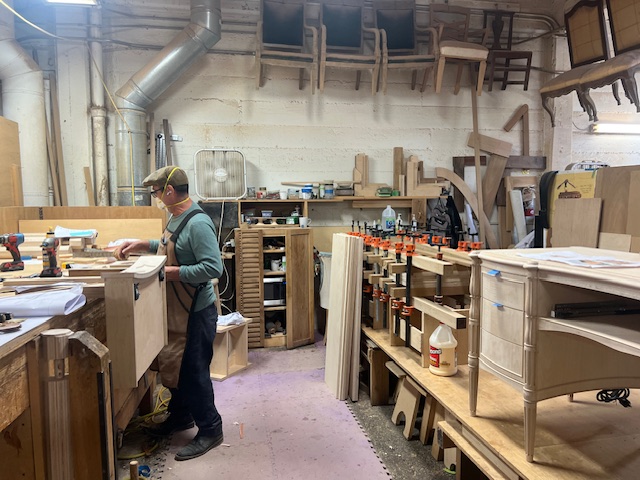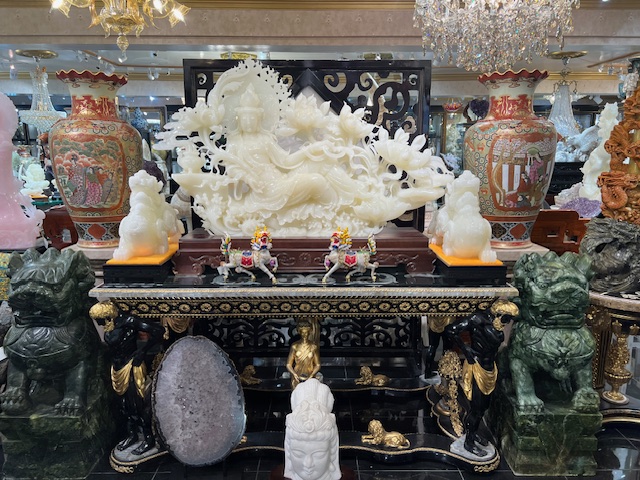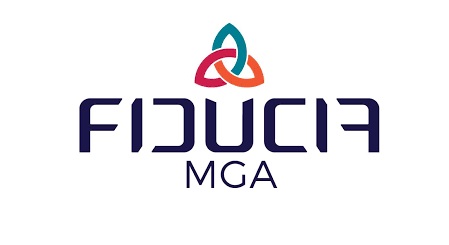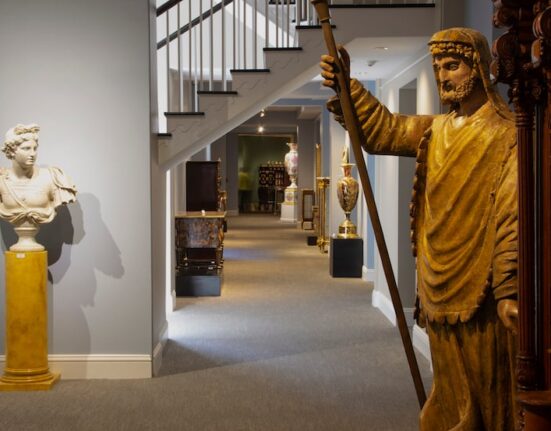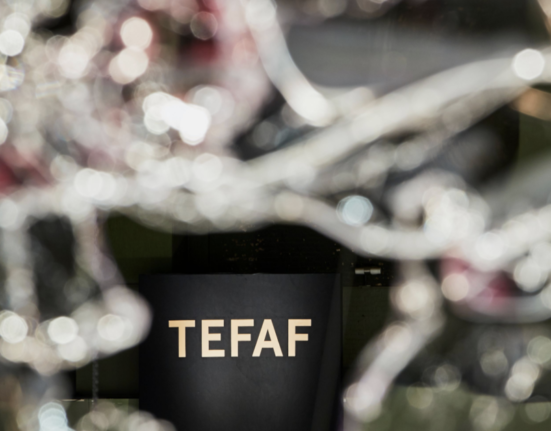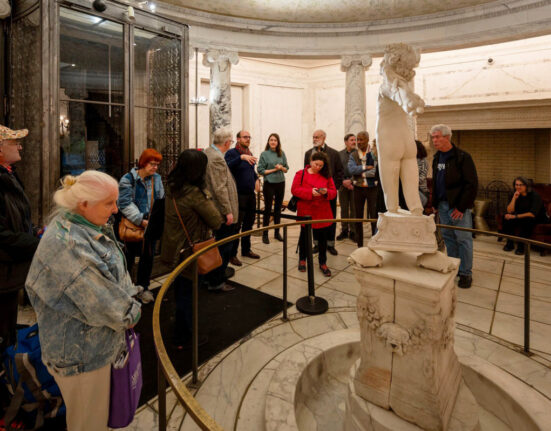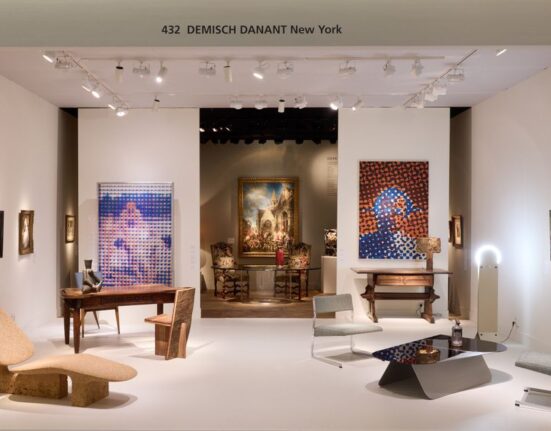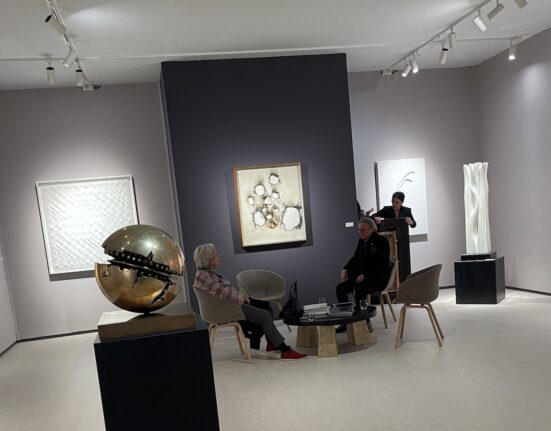A refurbished Steinway from the 1800s: $220,000. A Buddha made of solid jade: $195,000. A black lacquer cabinet crafted in 1750: $250,000.
On the surface, the sellers of these unique objets d’arts—Michael Fine Art and C. Mariani Antiques—would seem to have much in common. Perhaps most importantly, both display their wares in tightly packed, multistory showrooms that practically explode with gilding and glaze, crystal and rare woods.
These two businesses also cater to celebrity clientele. Claudio Mariani has had everyone from Clint Eastwood to Oprah Winfrey walk through his showroom, and Michael Fine Art owner Aldo Koren keeps a thick photo album of all his many famous customers.
Both stores have a thing for over-the-top chandeliers, worthy of Elsa-scale ice palaces: C. Mariani has a Venetian crystal light fixture on sale for $19,500—the last one he sold went to a wedding venue—while C. Mariani currently has a chandelier previously owned by Carla Bruni, the wife of a former French president.
“It’s a very famous chandelier,” Mariani said, looking with adoration toward the rock crystal and quartz confection dangling from the ceiling.
Yet within these interiors—bursting with candelabras and parquetry, golden-framed mirrors and oversize oil paintings—lie two vastly different realities. While C. Mariani is thriving, Michael Fine Art is floundering.
Business at the SoMa shop keeps getting better, and the upstairs workshop—an atelier that feels airlifted from Europe—maintains a staff of 35 specialists who conduct museum-quality restorations. The boss’s pride in the staff is evident in his introductions: restorer Erick Martinez is “Picasso,” gilder Carlos Medina is “Goldfinger” and carpenter Rene Rivas is “Geppetto.”
“The pandemic helped us,” Mariani said. “People stopped going to Europe and started buying locally. We didn’t suffer at all.”
Some of San Francisco’s most well-known interior designers—Suzanne Tucker and Paul Wiseman among them—shop at C. Mariani for their clients. Beyond that, Mariani can’t give names.
“Many have nondisclosure agreements,” he said. “We often don’t even know the name of the end user.”
Uniquely Different
You might say antiquing is in Claudio Mariani’s blood—his grandfather, father and brothers were all antique dealers back in Italy—which has allowed the San Francisco small business owner to develop an excellent network in Europe for sourcing his goods.
The showroom, which abuts the tangle of on- and off-ramps for the Central Freeway, has over 10,000 pieces from Europe and Asia, with items coming from as far back as the 16th century and many items coming from noble European families. The business has been at 1301 Harrison St. since 1986, and Mariani has had no issues with the neighborhood, even though he keeps many valuables on site—like a Buddha that dates back four or five centuries.
“It should be in a museum,” Mariani said. “But the fun part here is you can touch everything.”
During a tour of the upstairs restoration studio—a buzzing hive where tables are sanded, parquetry is inlaid, chairs are gilded and wood is carved—the workshop manager, Daniel Krueger, comes over to indicate which furniture items cannot appear in photographs, due to aforementioned confidentiality agreements.
Over at Michael Fine Art, on Grant Avenue beside the Dragon Gate in Chinatown, Aldo Koren has high-value Buddhas as well, some of which are carved from solid pieces of jade 2 feet wide. The pieces are so labor-intensive that artisans may spend the majority of their lives carving them.
“It represents their life’s work,” Koren said.
The store is crowded with rare and glittering treasures: crystal chandeliers from Murano, petrified wood slabs from China, oversized geodes from Brazil. The owners of the family business travel all over the world to find unique artists.
“Our customers know what they find here, they won’t find anywhere else,” Koren said. “In an era when you can find everything online, we remain unique.”
But while business has been booming at C. Mariani, it’s a struggle at Michael Fine Art, despite having expanded to storefronts across the street and owning the main building in which the shop are located.
While Koren said there have always been ups and downs in the business, the store has simply not recovered from the pandemic’s toll
“We thought after a year or two it would be better,” Koren said, “but it hasn’t been.”
For a business like Koren’s, where 95% of the clientele is tourists, how San Francisco is perceived can have a dramatic impact on the bottom line.
“People around the country won’t come to San Francisco because of the homeless and crime,” Koren said. “They are scared to come here, and we pay the price.”
Grant used to be the Madison Avenue of San Francisco, but now there are a staggering number of vacancies along that central shopping corridor. Effi Shoua, who runs Gefen Gallery down the block from Michael Fine Art, has been in the area for 30 years. But since the pandemic, business has been down 50%.
“It’s never felt like it has now,” Shoua said. “I’ve been through a lot, but this is a first.”
Both Koren and Shoua blame the city for driving customers away, citing a lack of progress on issues surrounding homelessness and perceptions of public safety in and around Downtown. So while city stakeholders may tout buzzy new restaurant openings and croissant-shaped saviors, the reality is that many businesses in the area are barely hanging on.
C. Mariani and Michael Fine Art are two family businesses, both in operation for nearly three decades—but their realities couldn’t be more different. Koren, like Shoua, hopes one day things will change.
“There’s so much potential,” Koren said. “But they’re not taking care of the city in the right way.”

